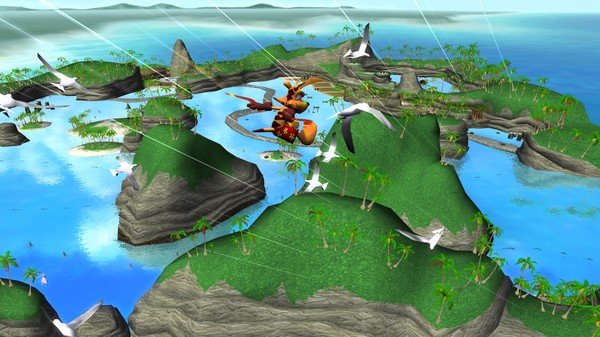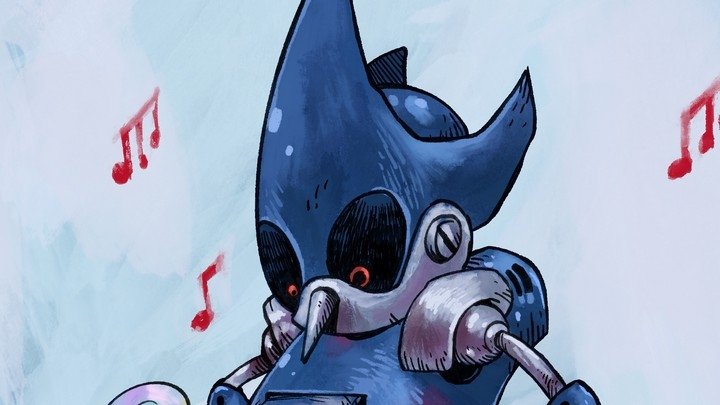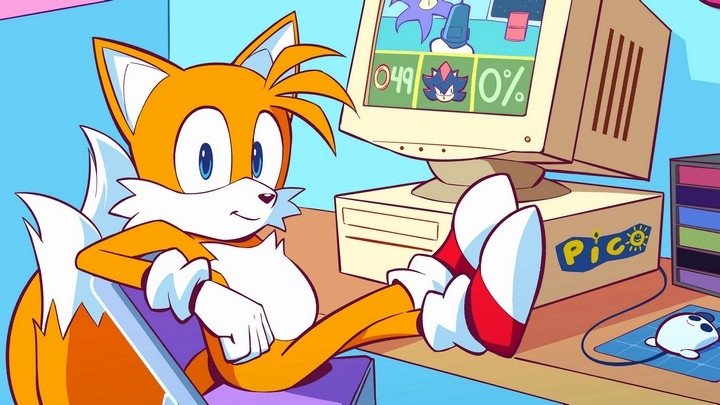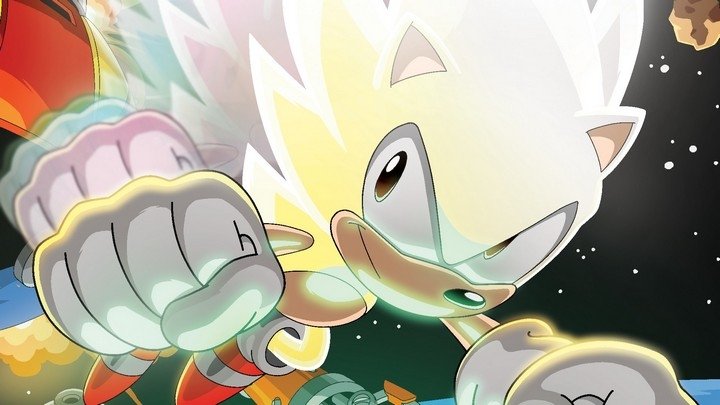Ignore the new Bubsy game and it'll go away: an eight-point plan
Irony poisoning ruins lives, folks.
Bubsy: The Woolies Strike Back is the vessel of a thousand sins, none more so than laziness. (It's a sin I share, so don't expect a comprehensive review.) It's one thing for a game to be poorly paced, poorly programmed, poorly designed, poorly conceived; the new Bubsy game is completely bereft of purpose and ambition and exists solely to allow Bubsy's new owners, the Hong Kong IP management firm Billionsoft, to continue skimming money from people via largely ironic impulse purchases (and, I suspect, to allow developer Black Forest Games to keep the lights on until they'd found a buyer for their studio). It's a passionless, thoughtless, aggressive waste of time, cobbled together from the dregs of an unrelated game (Giana Sisters: Twisted Dreams, in case it wasn't obvious) with no consideration for any sort of audience, subversive or sincere. There's dignity in failure; the new Bubsy game doesn't even try.
Thusly, I've assembled a list of seven games, both classic and modern, that embody the most identifiable traits of the original Bubsy games — that is to say, the traits of Sonic the Hedgehog — in addition to a few other appealing elements not present in the new Bubsy game, such as structure, creativity and fun, so that when you inevitably consider that new Bubsy game for someone because, ha ha, ~what could pawsibly go wrong~, you can instead bring some good into the world by introducing them to something they might genuinely enjoy, made by people who genunely care. (I've also included Awesome Possum because I'm an asshole.)
Who knows, maybe if enough people stop endorsing cynical brand revivals, their disinterested rights owners might be forced into lending their properties to people who actually give a damn about them? Even Bubsy fans deserve better.
Freedom Planet (PC, Playstation 4, Wii U)
Sonic Mania has rekindled a love of classic Sonic in the hearts of many, but for many hardcore devotees, those flames were reignited by Freedom Planet, a fangame-turned-original product that overlays elements of classic 16- and 32-bit sidescrollers onto the speedy, physics-heavy framework of Sonic the Hedgehog to create a hybrid action game that adds layers of exhiliration and challenge not present in 2D Sonic games, before or since.. By no means is it perfect — they substituted '90s 'tude with '00s DeviantArt melodrama, and one doesn't always want to fight a Treasure boss with a character that handles like Sonic — but in the eyes of many, Freedom Planet is the true successor to the 16-bit Sonic legacy, and the commercial and critical success of the first game has guaranteed a less blatantly Sonic-y sequel.

High Seas Havoc [NA] / Havoc [EU/AU] / Captain Lang [JP] (Data East/Codemasters, Sega Genesis/Mega Drive, 1993/4)
Data East's Sapporo studio deviated from their usual arcade-to-Mega Drive offerings with High Seas Havoc, an original console sidescroller starring an anthropomorphic pirate... seal? named Havoc on a quest to rescue his buddies and stop an evil pirate captain from acquiring an all-powerful gem. As far as Sonic clones go, High Seas Havoc is something of a bait-and-switch: the opening stage is pulled straight from the Sonic playbook, with rolling green hills, sparkling ocean backgrounds with parallax scrolling and lots of springs and slopes, but it very quickly drops most of the overt Sonic-isms and becomes a more traditional linear action-platformer, albeit one with a player-character who handles like Sonic with weighted clothing. (Strangely, publisher Codemasters opted to remove the opening stage from the PAL version.) Original, polished and surprisingly challenging, High Seas Havoc is a minor gem worth tracking down.

Rocket Knight Adventures (Konami, Sega Genesis/Mega Drive, 1993)
While Konami's first original Mega Drive games was clearly born under the shadow of Sonic, Rocket Knight Adventures' reputation as a Sonic wannabe is largely underserved, not least of all because it's actually really good. Developed by many of the minds behind Contra III and Contra Hard Corps, Rocket Knight Adventures borrows some surface-level Sonic-isms -- the protagonist Sparkster is a western-style, more-or-less-blue critter with expressive animations and a penchant for goin' fast -- and overlays them onto a framework of constant setpieces, huge bosses and frantic hardcore action more akin to Contra or Gunstar Heroes than the average jump-and-run platformer. Rocket Knight Adventures and its contemporary follow-ups -- the admirable Sparkster for SNES and the thoroughly unpolished Sparkster: Rocket Knight Adventures 2 for Mega Drive -- have all eluded re-release, but Climax Studios' flaccid would-be revival from 2010 is still available on PC, should you be so desperate.

Spark the Electric Jester (PC)
Another crowdfunded game born from the Sonic fan community, Spark the Electric Jester is a simpler and arguably more cohesive synthesis of the influences that shaped Freedon Planet, with an ability-altering powerup system that takes cues from Dynamite Headdy and the Kirby series. Spark creator Felipe 'LakeFeperd' Ribeiro Daneluz made the game almost entirely on his own in a relatively short period, and he's already made impressive progress on a bonafide 3D sequel.

Socket [NA] / Time Dominator 1st [JP] (Vic Tokai, Sega Genesis/Mega Drive, 1993/4)
Of all the classic games I've highlighted, Socket is the one most clearly derived from Sonic the Hedgehog: the pop-surrealist aesthetic, level structure, the emphasis on speed... pretty much everything is rooted in Sonic to some degree, save for the thorougly dorky cyber-duck player-character. Like most Vic Tokai games, it's a merely okay game that coasts on audiovisual charm, but it's definitely among the upper tier of Sonic pretenders from that era. (Special mention must be given to the music, much of which has been repurposed for various Sonic ROM hacks.)

Tembo the Badass Elephant (PC, Playstation 4, Xbox One)
Game Freak's first foray into HD game development hearkens back beyond the eternal reign of Pokemon and to more humble endeavours like Pulseman and Jelly Boy; your badass elephant charges, stomps and smashes through detailed, cartoony 2D environments with a cadence that's one part Sonic and two parts Donkey Kong Country. Slipshod, but not without its charm..

Ty the Tasmanian Tiger series (PC)
I can't pretend to be a massive fan of this early-'00s series of 3D platformers, or even a casual one: I demoed one or two of them on the PS2, felt absolutely nothing and went on with my life, secure in the belief that the rest of the world felt exactly as I did. Lo and behold, I was wrong: developer Krome Studios began porting and remastering the Ty games for PC earlier this year and through some cosmic quirk of fate they're among the highest-rated games on all of Steam and are regularly updated with new features and original content. (There's even a new 2D game that looks to be a port of a smartphone game. It looks... like a smartphone game.) Whaddya know, sincerity and passion count for something after all.

Awesome Possum... Kicks Dr. Machino's Butt (Sega Genesis/Mega Drive, 1994)
Let's cut to the chase: this game is abominable. Everything the world holds against Bubsy is doubly true of Awesome Possum: it's hideous to the ears and eyes, it's rife with technical issues and near-constant slowdown, it's packed with heavy-handed messages about recycling and the titular possum, never, ever, ever shuts the hell up. Bubsy's reputation is not undeserved, but that poor ol' bubcat has taken a lot of bullets that should have been aimed at true garbage like Awesome Possum. I'd rather you didn't drink poison but if you absolutely must, don't half-ass it: skip the bleach and go straight for the cyanide.



